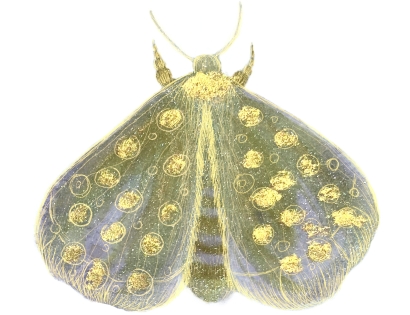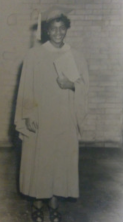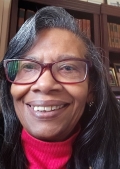
The Circle of Life, Or How I Became My Mother’s Moth-er
by Jackie Oldham
The Joy of Parents
is preparing their children
for Life.
The Pain of Children
is preparing their parents
for Death.
These words I wrote
three months ago,
after helping my mother navigate
an uncharacteristic
moment of fear
When, on a steamy August night,
I accidentally let three moths
into her house,
while she was talking to her sister
on the phone.
So unnerved was she
that she abruptly ended the call,
and enlisted me—
the child who used to run away
from butterflies—
to get rid of these moths!
Mom turned off the lights
In the kitchen and dining room,
while I turned down the living room light.
Then, she turned on the front porch light
to lure the moths to the screen door.
One moth took the bait,
landing on the screen.
I carefully opened the screen door
while closing the main door
behind me.
The moth flew away.
Back inside,
I stared
as Mom,
reaching for something
on the darkened dining room table,
suddenly flinched away from the second moth,
which had landed
in her outstretched hand.
The moth flew into the living room,
landing on the wall
near the dim lamp.
I rolled up a newspaper page,
smashed the moth,
then wiped the detritus
from the wall
with a handy paper towel.
The third moth was
a ghost, unseen
and never found.
I took my leave
from caregiving
for the night,
returning to my own home,
still worried about that third,
unseen moth.
Seven months later,
my Mother flew away.
IMAGE: Moth, watercolor by Ekaterina Kim.

NOTE FROM THE AUTHOR: This poem was originally written and published on my blog in 2017, as part of a longer poem titled “The Circle of Life,” a missive about the stages of life as positions on a clock. But I was never fully satisfied with that poem. I wanted the incident with my mother to stand on its own. When I read about the Silver Birch Press ALL ABOUT MY MOTHER Poetry Series, I saw an opportunity to reframe and express the deeper meaning of the incident by introducing the metaphor of “mother” and “moth-er.”

AUTHOR’S PHOTO CAPTION: Mother’s & Daughter’s Graduation Photos. Above: Dorothy Barber Oldham, Graduate of Frederick Douglass High School, Baltimore, Maryland (February 1950, age 17 years, 4 months); Right: Jackie Oldham, Graduate of Western High School, Baltimore, Maryland (May 1970, age 16 years, 7 months). Douglass High School (founded in 1883 as the Colored High and Training School), second oldest U.S. high school specifically for African-Americans, has produced many prominent African-American leaders. Western High School (founded in 1844) is the oldest public all-female high school in the U.S. Both schools are still in existence.

ABOUT THE AUTHOR: Jackie Oldham (she/her) is an essayist, poet, blogger, format editor, musician, and photographer from Baltimore, Maryland. Her poems have appeared in the journals WOC This Way for Poetry, Minyan Magazine, Spillwords Press, Rigorous Magazine, Oddball Magazine, and Global Poemic, and in A Lovely Place, A Fighting Place, A Charmer: The Baltimore Anthology (Gary M. Almeter and Raphael Alvarez, editors, Belt Publishing, 2022). Her personal blog can be found at baltimoreblackwoman.com, with companion Facebook and Instagram accounts. With Rafael Alvarez, she cofounded the blog braciolejournal.com (History of Poetry in Baltimore/1945 to the Present). As a format editor, she worked with Baltimore author Rosearl Julian West to format West’s memoir, Reflections: My Journey on Arunah, for publication on Amazon.com.










